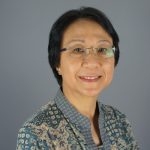‘Lausanne Global Analysis (LGA) was launched ten years ago, following the Third Lausanne Congress on World Evangelization: Cape Town 2010,’ recalls Doug Birdsall, who was leading the Lausanne Movement at that time. ‘Its purpose was to fortify the vision of the Lausanne Movement at the time—”The whole church taking the whole gospel to the whole world”—by means of a bold strategy shaped by profound missiological, cultural, and theological reflection.’ In this special article, ‘Lessons from 10 Years of Lausanne Global Analysis: Understanding our times and what we should do’, by Doug Birdsall, David Taylor (former LGA editor) and Loun Ling Lee (current LGA editor), we are reminded of the original specific purpose, distinctive modus operandi, and editorial style which are still important and relevant today. As we look back, we also look forward to the future role of LGA in view of the changed and changing global context of the church, mission, and Lausanne. ‘We hope and pray that the story of LGA could inspire our brothers and sisters in various regions to collaborate with one another, interculturally and intergenerationally, and to embark on their own analysis of events, issues, and trends in light of Scripture and God’s mission.’
Kevin Higgins in ‘Ralph Winter and the “People Group” Missiology: The mission frontiers of both the unreached and the reached’ looks back at the concepts of people groups and contextualization propounded by Ralph Winter, founder of Frontier Ventures (FV), and rethinks (as did Winter himself) their implications on the contemporary frontiers of mission. As the current general director of FV, Higgins reassesses the organization’s foundational principles while looking forward to its future in ‘the coming post-everything world—post-Christian, post-post-modern, post-religious (as we know it), post secular (as we know it).’ Reflecting on the biblical theme of the image and blessing of God, he challenges mission practitioners, personally and organizationally, to question our assumptions of peoples—their identities, cultures, religions—and to re-evaluate our mission approaches.
One of the legacies of Andrew Walls in the research field of world Christianity is the de-centring of the Western Christian narrative and the re-centring of African Christian history. In ‘The Lifework of Andrew Walls for African Theology: Re-centering Africa’s place in Christian history’, Wanjiru M. Gitau, an assistant professor of practical theology and world Christianity, pays tribute to Walls, especially his honest humility in evaluating the Western narrative of the history of Christianity. She writes that in the immediate post-colonial era, ‘theologians and historians made the implicit assumption that Western Christianity sets the definitive standard . . . Missiology, the discipline that grew out of the experiences of the [Western] missionary movement, became a lens into Christianity in the non-Western world’, adding, ‘Church history treated non-Western Christianity as an extension of Western missionary activity.’ It was Walls’ encounter with the ‘dynamic life-worlds of African Christians’ that transformed his worldview of the global Christian movement. Throughout his life, he advocated multipolar listening to allow indigenous Christians from multiple worlds to tell their own stories. May we follow in his footsteps.
‘The leadership team of the Lausanne Movement took the initiative to hold listening calls, inviting evangelical leaders of the world by region and issue network’ to share their thoughts. The purpose was to determine: ‘What are the most significant gaps or remaining opportunities towards the fulfilment of the Great Commission? What promising breakthroughs and innovations that can accelerate the fulfillment of the Great Commission? In what areas is greater collaboration most critical in order to see the fulfilment of the Great Commission? Where is further research needed? To whom else should we be listening as part of this process?’ Steve Moon, for the Lausanne Global Listening Team, summarizes the process, result, and analysis of this survey in ‘The Evangelical Church Interacting between the Global and the Local: A summary report of the Lausanne 4 Listening Calls’. He concludes that there is a strong emphasis that ‘the Fourth Lausanne Congress planned to be held in Seoul in 2024 must be used as a global platform both for the ongoing strategic alliance of ministries and for the special orchestration of innovation in ministries.’
Lausanne Global Analysis is also available in Portuguese, Spanish, French, and Korean. Please send any questions and comments about this issue to analysis@lausanne.org. The next issue will be released in January 2023.

